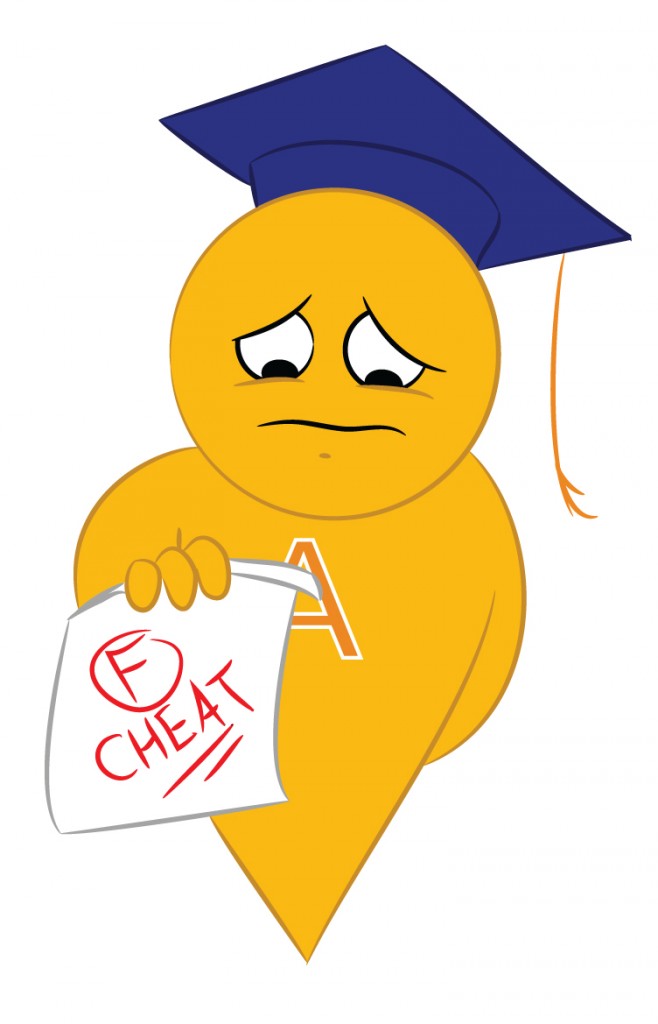2 Ways to Lose Your Athletic Scholarship as a Freshman or Sophomore
If you are looking for an athletic scholarship to pay for college you have to maintain your academic eligibility. The process of becoming academically eligible starts as early as freshman year of high school.
 While you won’t need to register for the NCAA Eligibility Center until your junior year, the classes that a high school prospect takes in their first two years can have a major impact on their eligibility. Many high school athletes also rely too heavily on their academic counselors. It is very important for athletes and their families to do their own research to ensure that they stay academically eligible throughout high school. Here is a complete list of the core course requirements for the NCAA.
While you won’t need to register for the NCAA Eligibility Center until your junior year, the classes that a high school prospect takes in their first two years can have a major impact on their eligibility. Many high school athletes also rely too heavily on their academic counselors. It is very important for athletes and their families to do their own research to ensure that they stay academically eligible throughout high school. Here is a complete list of the core course requirements for the NCAA.
Your high school academic counselors can help you get the classes you need in order to graduate, but they are often not familiar with the requirements for NCAA eligibility. We get calls all the time from guidance counselors who are approached by athletes with questions regarding their eligibility. While many of the counselors know some things about the NCAA, they don’t know enough to ensure your eligibility. That’s why it is so important for athletes to do their own research and make sure they are keeping up with any changes in rules that might apply to them.
In order to be academically eligible to compete in the NCAA, there is a specific list of classes and subjects that athletes need to fulfill. Athletes should start completing these requirements beginning their freshman year to ensure that they all get finished by the time they graduate. Here is the division I and division II class requirements to earn eligibility:
Division I
If You Want to Participate in Athletics or Receive an Athletics Scholarship During Your First Year, You Must:
• Graduate from high school;
• Complete these 16 core courses:
– 4 years of English
– 3 years of math (algebra 1 or higher)
– 2 years of natural or physical science (including 1 year of lab science if offered by your high school)
– 1 extra year of English, math, or natural or physical science
– 2 years of social science
– 4 years of extra core courses (from any category above, or foreign language, comparative religion or philosophy)
• Earn a minimum required grade point average in your core courses
• Earn a combined SAT or ACT sum score that matches your core-course grade-point average and test score sliding scale (for example, a 2.400 core-course grade-point average needs an 860 SAT).
Division II
Students Enrolling Prior to August 1, 2013
If You enroll in a division II college and want to participate in athletics or receive an athletics scholarship during your first year, you must:
• Graduate from high school;
• Complete these 14 core courses:
– 3 years of English
– 2 years of math (algebra 1 or higher)
– 2 years of natural or physical science (including 1 year of lab science if offered by your high school)
– 2 additional years of English, math, or natural or physical science
– 2 years of social science
– 3 years of extra core courses (from any category above, or foreign language, comparative religion or philosophy);
• Earn a 2.000 grade point average or better in your core courses
• Earn a combined SAT score of 820 or an ACT sum score of 68. For individuals enrolling at a college or university in Puerto Rico, earn a combined Prueba de Aptitud Academica score of 730.
Students Enrolling on or After August 1, 2013
If you enroll full time in a division II college on or after August 1, 2013, and want to participate in athletics or receive an athletics scholarship during your first year, you must:
• Graduate from high school
• Complete these 16 core courses:
– 3 years of English
– 2 years of math (algebra 1 or higher)
– 2 years of natural or physical science (including 1 year of lab science if offered by your high school)
– 3 additional years of English, math, or natural or physical science
– 2 years of social science
– 4 years of additional core courses (from any category above, or foreign language, comparative religion, or philosophy)
• Earn a 2.000 grade-point average or better in your core courses
• Earn a combined SAT score of 820 or an ACT sum score of 68. For individuals enrolling at a college or university in Puerto Rico, earn a combined Prueba de Aptitud Academica score of 730.
These requirements and more are updated every year in the NCAA Guide for the College-Bound Student-Athlete.
Are you on track to be eligible? Leave your questions in the comments section below, and our recruiting and eligibility experts can help you determine what you need to do. If it is easier, you can connect with us on Facebook, Twitter, or Google+!
Find opportunities for athletic scholarships and get connected to college coaches.
